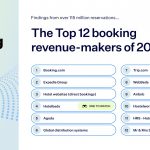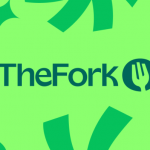I think we have all fallen foul of the grammar police from time to time; I think we all occasionally forget seemingly incidental facts in our daily conversations; I think we all have bad hair days…but if you don’t get these things right when job hunting, you can probably forget that perfect job.
Forget about all that fabulous relevant education, training and work experience that make you the ideal candidate. The reality is, in most circumstances, you won’t get the chance to be invited to the first interview, let alone get past it!
So, details are important. It’s as simple as that…
“The difference between mediocrity and excellence is attention to detail.” – Sebastian J. Barbarito
Those details are equally important whether compiling your resume, dressing correctly for the interview, or preparing answers to questions you know are going to be asked during the meeting.
Let’s have a look at a few examples of the things you need to get right.
Firstly, your resume needs to get past the Grammar Nazi.
Now I blame Bill Gates and Microsoft for constantly incorrectly, correcting my spelling and grammar, even when I haven’t asked, but you need to pay attention.
There are people who (or is it whom?) start to turn a shade of purple when they see “to”, when it should be “too”. They mutter expletives under their breath when they read “of” when it should be “have”. Please don’t confuse “there”, “their”, or “they’re”, as their head may actually explode.
For these people, and there are many of them, these simple errors will immediately have your CV heading for the bin.
Even when your English (and grammar) is normally great, when applying for your next job, be sure to take a second look at the resume (especially if you last reviewed it 2 years ago!). Take the time to review the language and spelling to check for common mistakes, and better still, have someone else re-read the documents before submitting.
Presentation is everything.
So, you have made it past the Grammar Police and have been invited for an initial interview, Great!
Next step is presentation. Ensure your mode of dress and general presentation is appropriate for the position (normally business attire). Ensure you are smart, clean, and professional. The soup stain or your jacket or dirt on your shoes is likely to reflect poorly, suggesting either the meeting is not important, or you lack basic personal skills.
Also remember, this is equally important, whether your interview is conducted by phone, Zoom or in person (yes, even by phone). Dress as if you were attending a face-to-face meeting, as this shows respect, professionalism and puts you in the best mindset to present yourself in the best light. First impressions count!
Fail to Prepare, Prepare to Fail.
Preparation is vital to all aspects of the job search, but preparation for the interview itself can be make or break.
Your resume is accurate, factual and on-point. Your personal presentation is appropriate and professional. Now time to ensure you present yourself to advantage, but how?
Well, preparation of course…
You will no doubt be delighted to hear that eighty per cent of interview questions are unoriginal, predictable, and able to be rehearsed.
Questions are generally based on the information you provide in your CV or application and the position for which you are applying. Add to that, a review of standard questions that are frequently asked in interviews and you can reliably predict many of the questions you will be asked. The benefit of this is that you are able to plan and practice answers to these questions, significantly increasing your likelihood of a positive outcome.
The questions asked generally fulfil a number of purposes – some are ‘warm up’ questions to get you relaxed, settled and talking, whilst others are designed to obtain factual information to enable the interviewer to assess your suitability, both personally (will they fit in with the team and me?) and professionally (do they have the skills to do the job?).
Elite Search provides a number of tools to help candidates perform to the best of their abilities, and for employers to get the best outcomes for their vacant position, so ask us about our guides and tips.
So, when you next commence your job search, take a little extra time, pay attention to the details, and remember
“The difference between something good and something great, is attention to detail.” – Charles R Swindoll.
About the Author
Tim Johns is a former Hotelier and Managing Partner with Elite Search – a leading hospitality recruitment firm. For more information about Tim and Elite Search visit http://www.elitesearch.com.au and The Elite Hotelier http://www.elitehotelier.net






























